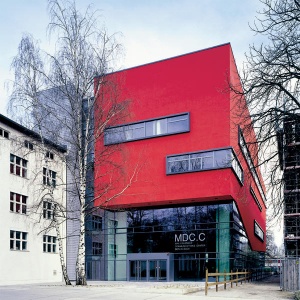Difference between revisions of "2015SeptMDC"
From Statistical Genetics Courses
Serveradmin (Talk | contribs) (→Course Slides) |
Serveradmin (Talk | contribs) (→Pictures from the Course) |
||
| Line 22: | Line 22: | ||
[[File:2015JuneInstructors.jpg|none|300x400px]] | [[File:2015JuneInstructors.jpg|none|300x400px]] | ||
| + | <!-- | ||
===Pictures from the Course=== | ===Pictures from the Course=== | ||
[[File:2015SeptemberCourseParticipants.jpg|none|400x267px]] | [[File:2015SeptemberCourseParticipants.jpg|none|400x267px]] | ||
| + | --> | ||
===Downloads for Course=== | ===Downloads for Course=== | ||
Revision as of 17:23, 7 June 2016
Contents
Identifying Genes for Mendelian Traits using Next Generation Sequence Data
Sept 28-Oct 2, 2015, Max Delbrück Center (MDC) for Molecular Medicine, Berlin, Germany
General Information
Emphasis in this course is on strategies for gene mapping and variant/gene identification for Mendelian Traits. It will include theory as well as practical exercises. The exercises will be carried out using a variety of computer programs (e.g. Gemini, GeneHunter, GERP, Homozygosity Mapper, Integrative Genome Viewer, MERLIN, PhyloP, PolyPhen, SEQLinkage, Variant Mendelian Tools,) and with pencil and paper. TOPICS include: study design; linkage analysis and homozygosity mapping using genotype array and next generation sequence data (exome and whole genome), haplotype reconstruction, evaluating pedigree informativeness and power to detect linkage, identification of causal variants using filter approaches, variant annotation, evaluation of deleterious effects of variants and their functionality
Course Schedule
Link to Berlin hotel tax exemption form
Direction to the MDC Campus
Direction to the classroom
Location:
- MDC - communication center (Building C83 on the Campus Map)
- Room Axion 2
The building is red and stands across the street from the campus bus stop and the blue bear.
Course Instructors
The organizers and instructors for the course are Suzanne Leal (Baylor College of Medicine) and Michael Nothnagel (University of Cologne).

